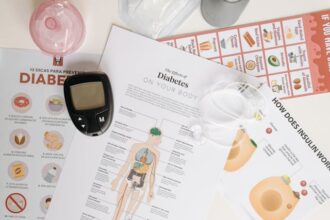During the initial months of the COVID-19 pandemic, older adults who lacked sufficient savings to manage emergency expenses encountered an unexpected challenge: heightened feelings of loneliness. A recent study by researchers at Ohio State University highlighted a notable increase in loneliness among individuals over 65 during the pandemic. This trend transcended income levels and overall wealth. Interestingly, the study pointed out a specific group that was particularly affected. Those who anticipated relying on credit cards to settle emergency expenses were more prone to experience significant loneliness.
Cäzilia Loibl, co-author of the study and the chair of consumer sciences at Ohio State’s College of Education and Human Ecology, emphasised the critical link between credit card debt and loneliness among older adults. While the data from the study did not explicitly explain why this correlation exists, another co-author, Madeleine Drost, a research manager at Ohio State’s John Glenn College of Public Affairs, proposed a plausible rationale. According to Drost, the financial strain these individuals feel is likely a burdensome topic, which they might find difficult to discuss with friends or family, potentially leading to social withdrawal and reduced community interaction.
The research involved a comprehensive survey of 7,149 adults aged 65 and older conducted by the University of Chicago’s NORC research organisation for the Data Foundation’s COVID-19 Impact Survey. The participants were interviewed thrice between April and June 2020, during which the severity of pandemic lockdowns fluctuated. One of the key findings was that higher income and wealth did not necessarily shield older adults from loneliness during the pandemic’s early stages. Loibl noted that loneliness was a shared experience across different economic groups during this time.
However, the presence of emergency savings did play a role in mitigating loneliness. The study asked participants how they would manage a hypothetical emergency expense of $400. Those who indicated they would charge it to a credit card and pay it off over time reported higher loneliness levels than those who could afford to pay immediately. This observation aligns with previous research linking credit card debt to financial stress and increased loneliness among older adults, as highlighted by Drost.
Additionally, the study explored how various preventative measures taken by older adults to avoid COVID-19 infection — such as hand washing, social distancing, and mask-wearing — and changes to personal plans due to pandemic-related restrictions impacted their feelings of loneliness, irrespective of their economic status. Interestingly, even as lockdown measures were relaxed towards the end of the study period, the easing did not alleviate the feelings of loneliness among participants. This suggests that the impact of limited emergency funds and the restrictive measures during the pandemic had lasting effects on loneliness, according to Loibl.
The findings from this study underscore the broader implications of financial readiness and mental health among older adults, particularly in times of crisis. Financial and credit counselling could provide significant benefits not only presently but also in preparing for future emergencies. Drost emphasised the importance of considering the needs of senior citizens during crises, pointing out that such situations are likely to exacerbate feelings of loneliness, especially among those with inadequate emergency savings. This research highlights the ongoing relevance of these findings beyond the COVID-19 pandemic, underscoring the need for targeted support and interventions for older adults to manage their financial and emotional well-being.
More information: Madeleine Drost et al, The association of financial resources and loneliness among older adults during a state of emergency, PLOS One. DOI: 10.1371/journal.pone.0314042
Journal information: PLOS One Provided by Ohio State University








